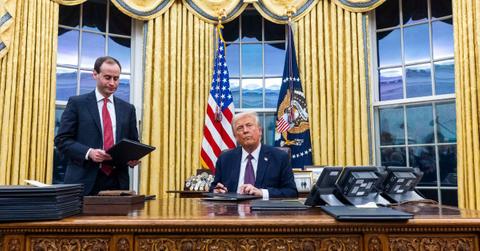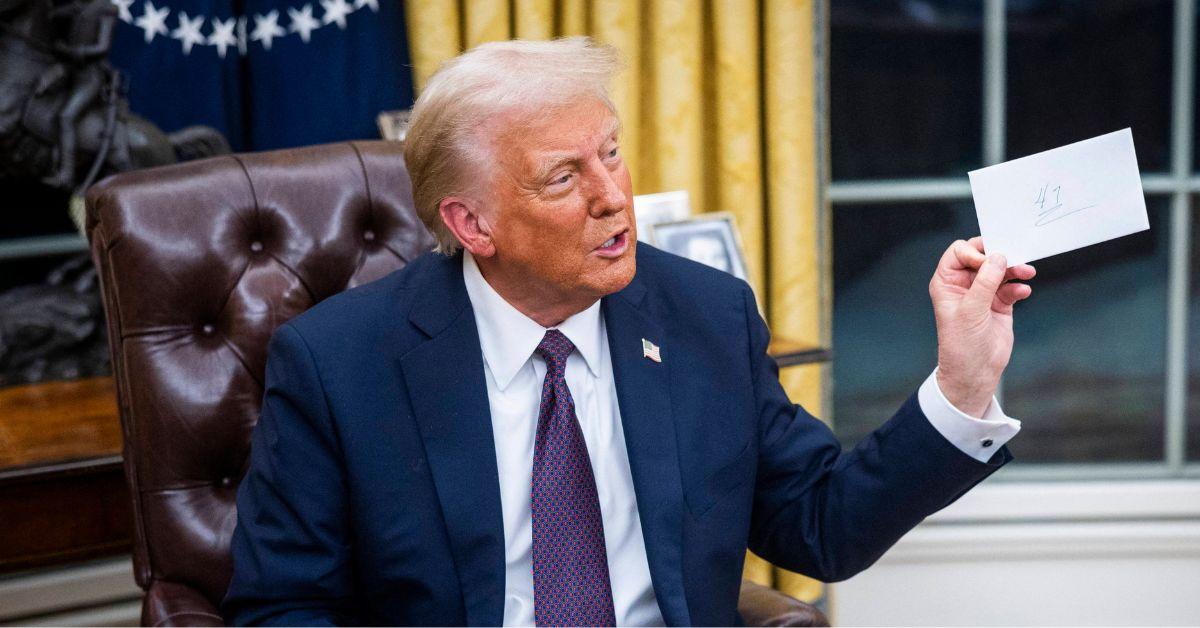Donald Trump Has Withdrawn the U.S. From the WHO, but What Does That Mean?
The order was one of several actions President Trump took immediately after taking office.
Published Jan. 21 2025, 10:03 a.m. ET

During his first day back in office, President Trump signed a flurry of executive orders designed to remake the federal government. While some of those orders were purely symbolic, others had real, concrete effects almost as soon as they went into effect.
Among the most concrete orders that Trump signed was an order withdrawing the United States from the World Health Organization (WHO). The WHO is a U.N. agency that exists to combat disease around the world. Following the news that Trump had withdrawn the U.S. from the organization, many wanted to better understand what our withdrawal means. Here's what we know.

What does it mean to withdraw from the WHO?
The WHO's mission is to provide health assistance to those struggling with acute crises around the globe. It was particularly essential during the COVID-19 pandemic, which is also when Trump became radicalized against them.
Trump's decision to withdraw from the organization puts its budget at risk because the U.S. was the most significant contributor, providing 18 percent of the organization's $6.8 billion.
The U.S. was particularly crucial in providing support for the WHO's program to fight HIV, providing 75 percent of the funding, as well as its efforts to combat tuberculosis, where the U.S. provided more than half of the funding.
The WHO was also working on a treaty designed to make sure that the world collaborated more closely during the next pandemic, but the U.S. will not take part in those negotiations while the exit is being finalized.
Trump has pulled out of the WHO before.
Trump pulled this same move during his first presidency, and while it put the organization's funding in jeopardy then as well, this time they are likely to be more prepared for Trump's decision. As a result, it seems possible that other countries will step up their funding for the organization in order to meet the shortfall, as Germany did during Trump's first term.
Regardless of whether the WHO makes up its funding shortfall or not, though, what seems clear is that Trump pulled out of the organization in part because he believed they had colluded with China to cover up the origins of COVID-19.
It's also unclear exactly what the ramifications of the WHO withdrawal will be for the U.S., especially given that Trump is planning to appoint the vaccine denier Robert F. Kennedy, Jr. to lead the Department of Health and Human Services.
Given the likelihood that another pandemic will break out at some point in the future, these moves could mean that the U.S. is as unprepared for that pandemic as it was for the first one. It could also have less impact than some of the least optimistic people have guessed.
We won't know for sure until the withdrawal actually plays out. All we can say for certain at this point is that the withdrawal will leave the WHO with a shortfall, and will leave the U.S. less tied into global efforts to fight disease.